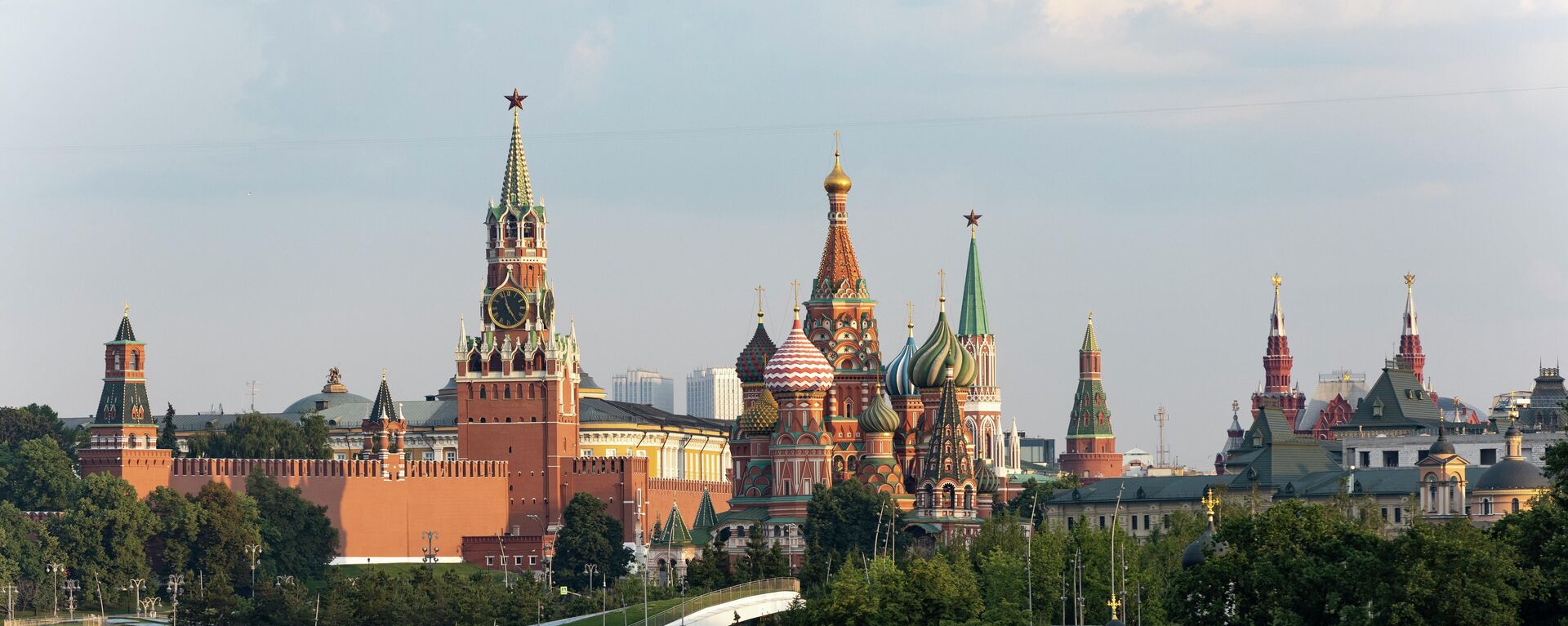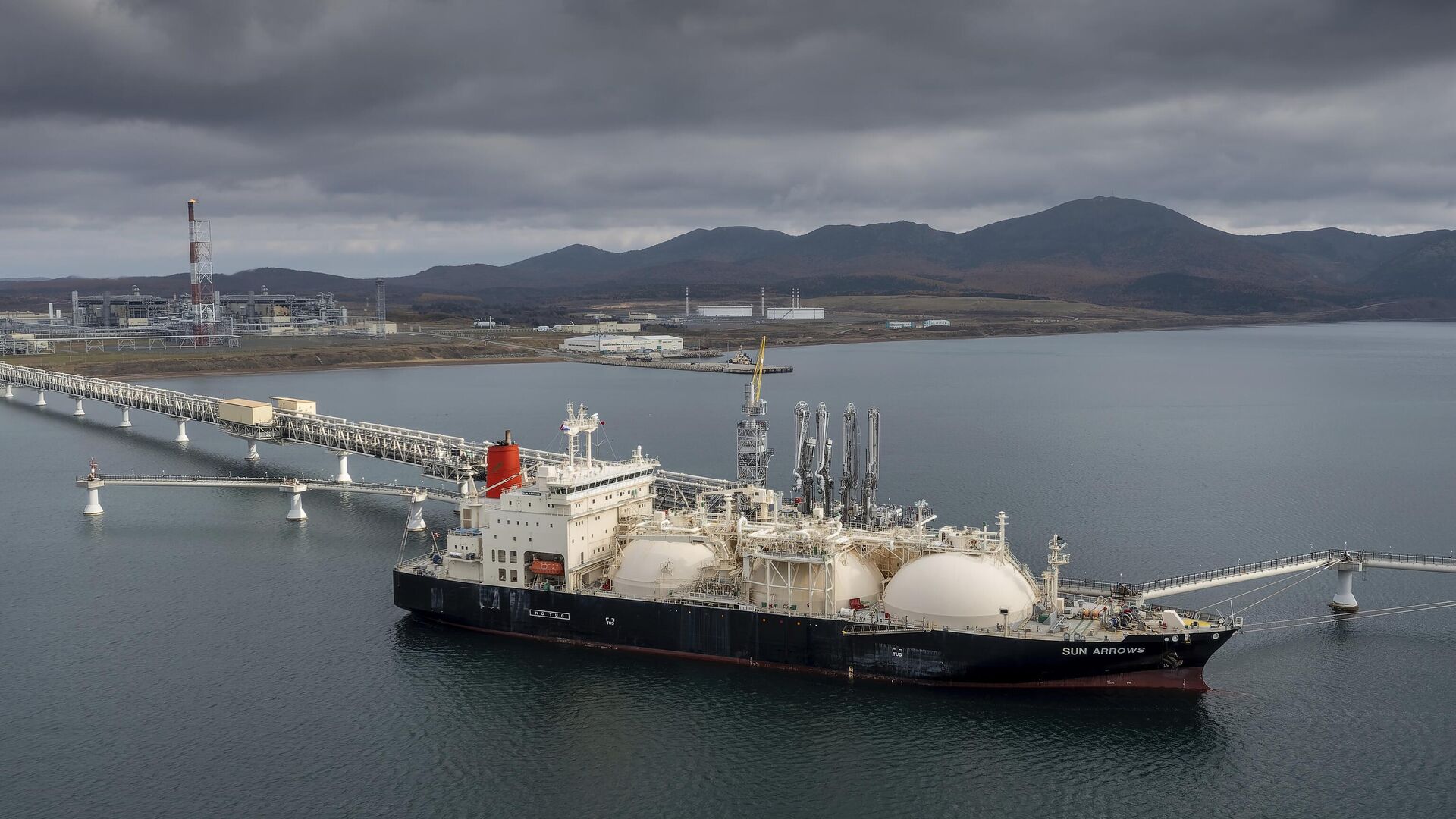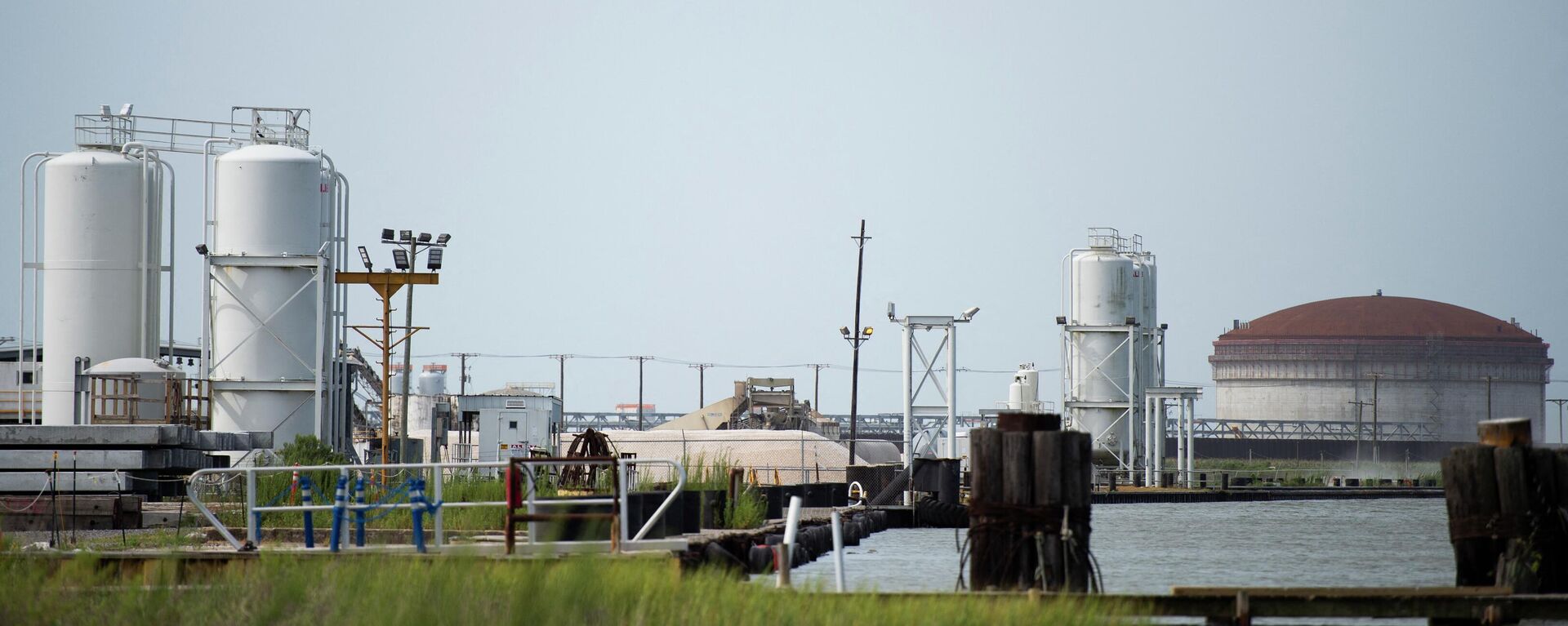https://sputnikglobe.com/20240218/us-sanctions-on-russia-drive-up-energy-costs-in-europe--and-america-too-1116853001.html
US Sanctions on Russia Drive Up Energy Costs in Europe – And America Too?
US Sanctions on Russia Drive Up Energy Costs in Europe – And America Too?
Sputnik International
Policy designed to hurt Russia is harming average consumers, in both Europe and America.
2024-02-18T03:18+0000
2024-02-18T03:18+0000
2024-02-18T03:18+0000
gas prices
european union (eu)
us
economy
us sanctions
liquefied natural gas (lng)
gas export
russia
energy prices
europe energy prices
https://cdn1.img.sputnikglobe.com/img/07e7/08/10/1112638260_0:318:3073:2047_1920x0_80_0_0_4c928eb067c2e379aded9d0ed65e9d9d.jpg
In the 1970s, comedian George Carlin described the United States as “nothing more than an oil company with an army,” observing the country’s history of imperial ambition driven by its struggle for global resources. In 2024 fossil fuels continue to play a major role in US politics, and one policy in particular has been blamed for causing hardship on both sides of the Atlantic.The US and the European Union unveiled multiple rounds of sanctions on Russia in 2022 after the country intervened against Ukrainian nationalists in the Donbass. The policy has been widely blamed for driving energy costs sky high across Europe, with devastating consequences for German industry. But some claim the sanctions have harmed American consumers as well by subjecting US-produced gas to the whims of the global market.Clark Williams-Derry of the Institute for Energy Economics and Financial Analysis is a critic of global exports of US liquified natural gas, which have surged with the advent of the sanctions. Williams-Derry points to several global phenomena he claims now have the potential to raise US energy prices: “a coal crisis in China, a cold snap in Asia, unrest in the Middle East, a pipeline explosion in Europe.”Such wasn’t always the case. As recently as 2007 the United States exported less than one trillion cubic feet of natural gas annually, a small portion of the world’s total energy supply. Now that amount has risen more than eight-fold with the country exporting an estimated 6.9 trillion cubic feet of liquified natural gas in 2022, making it one of the world’s top sellers of the fuel.The change owes to the efforts of former US President Barack Obama, who made increased domestic fuel production a priority during his presidency. Despite his party’s liberal reputation of pro-environment policy, Obama frequently took credit for encouraging the boom.The increased production and exports have created a windfall for fossil fuel companies and their shareholders, but many argue the policy has been bad for consumers.Benjamin Leibowicz, a professor of energy policy at the University of Texas at Austin, agrees, noting, “if there are more gas consumers and higher demand, that translates to higher prices.”One policy that would immediately lower energy prices in the United States and throughout the world would be to remove sanctions on Russian gas, increasing the global energy supply and driving prices back down. But such a policy rethink would undoubtedly harm the profits of powerful donors and interest groups.It would also mark a retreat from the current trend towards demonization of Russia, which is currently enjoying its status as the United States’ hated enemy du jour.
https://sputnikglobe.com/20220725/us-turns-top-liquefied-natural-gas-exporter-as-europe-leans-on-us-supply-amid-ukraine-crisis---eia-1097794667.html
https://sputnikglobe.com/20230817/russia-grows-richer-while-west-bleeds-trillions-amid-failed-sanctions--funding-ukraine-1112666650.html
russia
Sputnik International
feedback@sputniknews.com
+74956456601
MIA „Rossiya Segodnya“
2024
John Miles
https://cdn1.img.sputnikglobe.com/img/07e8/01/19/1116388787_0:0:1316:1316_100x100_80_0_0_77e70d36afd983012b1c5d38ddb84156.jpg
John Miles
https://cdn1.img.sputnikglobe.com/img/07e8/01/19/1116388787_0:0:1316:1316_100x100_80_0_0_77e70d36afd983012b1c5d38ddb84156.jpg
News
en_EN
Sputnik International
feedback@sputniknews.com
+74956456601
MIA „Rossiya Segodnya“
Sputnik International
feedback@sputniknews.com
+74956456601
MIA „Rossiya Segodnya“
John Miles
https://cdn1.img.sputnikglobe.com/img/07e8/01/19/1116388787_0:0:1316:1316_100x100_80_0_0_77e70d36afd983012b1c5d38ddb84156.jpg
energy costs, us sanctions, rise in gas prices, gas price hike, energy price hike, energy costs, energy price caps, gas price caps, us economy, eu economy, us hegemony, western pressure, western world, western dominance, us dominance, us sanctions, western sanctions, western pressure, natural gas
energy costs, us sanctions, rise in gas prices, gas price hike, energy price hike, energy costs, energy price caps, gas price caps, us economy, eu economy, us hegemony, western pressure, western world, western dominance, us dominance, us sanctions, western sanctions, western pressure, natural gas
US Sanctions on Russia Drive Up Energy Costs in Europe – And America Too?
Policy designed to hurt Russia is harming average consumers, in both Europe and America.
In the 1970s, comedian George Carlin described the United States as “nothing more than an oil company with an army,” observing the country’s
history of imperial ambition driven by its struggle for global resources. In 2024 fossil fuels continue to play a major role in US politics, and one policy in particular has been blamed for causing hardship on both sides of the Atlantic.
The US and the European Union unveiled multiple rounds of
sanctions on Russia in 2022 after the country intervened against Ukrainian nationalists in the Donbass. The policy has been widely blamed for driving energy costs sky high across Europe, with devastating consequences for German industry. But some claim the sanctions have harmed American consumers as well by subjecting US-produced gas to the whims of the global market.
Clark Williams-Derry of the Institute for Energy Economics and Financial Analysis is a critic of global exports of US liquified natural gas, which have surged with the advent of the sanctions. Williams-Derry
points to several global phenomena he claims now have the potential to raise US energy prices: “a coal crisis in China, a cold snap in Asia, unrest in the Middle East, a pipeline explosion in Europe.”
“Anytime global gas markets sneeze, we’re going to catch a cold,” said the expert.
Such wasn’t always the case. As recently as 2007 the United States
exported less than one trillion cubic feet of natural gas annually, a small portion of the world’s total energy supply. Now that amount has risen more than eight-fold with the country exporting an estimated 6.9 trillion cubic feet of liquified natural gas in 2022, making it one of the world’s top sellers of the fuel.
The change owes to the efforts of former US President Barack Obama, who made increased domestic fuel production a priority during his presidency. Despite his party’s liberal reputation of pro-environment policy, Obama frequently took
credit for encouraging the boom.
The increased production and exports have created a windfall for fossil fuel companies and their shareholders, but many argue the policy has been bad for consumers.
“It doesn’t matter if it’s the middle of winter here – peak demand, inventories are low, prices are high – [foreign] countries will buy it away, drive up [the] price of gas and electricity,” said Paul Cicio of the Industrial Energy Consumers of America (IECA), which lobbies for cheap fuel prices for US industry.
Benjamin Leibowicz, a professor of energy policy at the University of Texas at Austin, agrees, noting, “if there are more gas consumers and higher demand, that translates to higher prices.”
One policy that would immediately lower energy prices in the United States and throughout the world would be to remove sanctions on Russian gas, increasing the global energy supply and driving prices back down. But such a policy rethink would undoubtedly harm the profits of powerful donors and interest groups.
It would also mark a retreat from the current trend towards demonization of Russia, which is currently enjoying its status as the United States’ hated enemy du jour.

17 August 2023, 11:09 GMT





